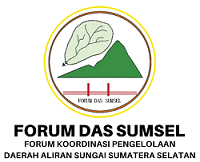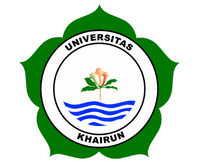Production of Lemongrass Extract to Control the Stink Bugs (Leptocorisa acuta L.) in Babatan Village, Lintang Kanan District
Abstract
The use of chemical pesticides in controlling pests is still widely used by some farming communities in Babatan Village, Lintang Kanan District, Empat Lawang Regency. Improved use of chemical pesticides hurts agricultural production and the environment. One alternative to chemical pesticides is plant-based pesticides which are safer and more environmentally friendly in supporting the implementation of integrated pest control (IPM). The results of a field survey in Babatan Village show that many plants can be used as vegetable pesticides, such as citronella (Cymbopogon sp) as a substitute for chemical pesticides. This counseling activity aims to introduce the benefits and methods of making lemongrass extract to control the pest stink bugs (Leptocorisa acuta L.) which attack many rice plants in Babatan Village. Implementation of activities on 4-5 February 2022 with the target targeting members of the Makmur Jaya Farmer Group. This community service activity uses counseling methods (lectures and discussions), demonstrations, and evaluations. The results of this activity indicate that the members of the Makmur Jaya Farmer Group, Babatan Village, Lintang Kanan District, Empat Lawang Regency gave a good response, can understand, and will apply the method of making and using the lemon grass plant pesticide in suppressing the stink bugs pest population so that the cost of buying chemical pesticides can be reduced, produce healthy plants, no residue that pollutes the product and the environment, and sustainably increases production.
Full Text:
PDFReferences
Afrianto, W.F., Putra, R.P., and Aini, Y.S. (2022). Overview of The Ethnobotany on The Use of Plants as Potential Botanical Pesticides in Indonesia. Jurnal Biologi Tropis. 22(1).220–243.http://dx.doi.org/10.29303/jbt.v22i1.3266.
Agassi, R., dan Lizarmi, E. (2022). Mengenal Pestisida Nabati, Alternatif Pengendalian Organisme Pengganggu Tumbuhan (OPT). https://ditjenbun.pertanian.go.id/ mengenal-pestisida-nabati-alternatif-pengendalian-organisme-pengganggu-tumbuhan-opt/. Diakses tanggal [4 Mei 2023].
Divekar, P. (2023). Botanical Pesticides: An Eco-Friendly Approach for Management of Insect Pests. Acta Scientific Agriculture.7(2).75-81.
Haritha, D., Ahmed, M.F., Bala, S., dan Debjani Choudhury, D. (2021). Eco-Friendly Plant Based On Botanical Pesticides. Plant Archives.21(1).2197-2204.
Kunbhar, S., Rajput, L.B., Arfan Ahmed Gilal, A.A., Channa, G.A., and Sahito, J.G.M. (2018). Impact of Botanical Pesticides Against Sucking Insect Pests and Their Insect Predators in Brinjal Crop. Journal of Entomology and Zoology Studies.6(2).83-87.
Laxmishree, C., and Nandita, S. (2017). BotanicalPesticides–AMajor Alternative to Chemical Pesticides: A Review. Int. J. of Life Sciences.5(4).722-729.
Lengai, G.M.W., Muthomi, J.W., and Mbega, E.R. (2020). Phytochemical Activity and Role of Botanical Pesticides in Pest Management for Sustainable Agricultural Crop Production. Scientific African. 7. 1-13. https://doi.org/10.1016/j.sciaf.2019.e00239.
Mumba, A.S., dan Rante, C.S. (2020). Pengendalian Hama Kutu Daun (Aphis gossypii) Pada TanamanCabai (Capsicum annum L.)Dengan Menggunakan EkstrakSerai Wangi (Cymbopogan nardus L.). Mumba.1(2).35-38.
Muta’ali, R., dan Purwani, K.I. (2015).Pengaruh Ekstrak Daun Beluntas (Pluchea indica) terhadap Mortalitas dan Perkembangan Larva Spodoptera litura F.Jurnal Sains Dan Seni ITS. 4(2). 55-58.
Ngegba, P.M., Cui, G., Khalid, M.Z., and Zhong, G. (2022). Use of Botanical Pesticides in Agriculture as an Alternative toSynthetic Pesticides. Agriculture.12(600).1-24. https://doi.org/10.3390/agriculture12050600.
Rustam, R., dan Tarigan, A.C. (2021). Uji Konsentrasi Ekstrak Serai Wangi Terhadap MortalitasUlat Grayak Jagung. Jurnal Dinamika Pertanian.XXXVII(3). 199-208.
Saraswati, I., dan Sardjono, N.S. (2022). Pestisida Nabati Sebagai Solusi Pengendalian OPT Tanaman Perkebunan Ramah Lingkungan. https://ditjenbun.pertanian.go.id/pestisida-nabati-sebagai-solusi-pengendalian-opt-tanaman-perkebunan-ramah-lingkungan/. Diakses tanggal [4 Mei 2023].
Siregar, A.Z., Tulus., dan Lubis, K.S. (2021). Penggunaan Pestisida Nabati Mengendalikan Hama-Hama Padi Merah (Oryza Nivara L.) Di Dusun Soporaru, Tapanuli Utara, Sumatera Utara. Jurnal AGRIFOR. XX(1). 91-104.
Sutriadi, M.T., Harsanti, E.S., Wahyuni, S., dan Wihardjaka, A. (2019). Pestisida Nabati: Prospek Pengendali Hama Ramah Lingkungan. Jurnal Sumberdaya Lahan. 13(2).89-101.
Zahro, F.A., Himawan, T., dan Mudjiono, G. (2016). Uji Bioaktivitas Ekstrak Daun Serai Wangi (Cymbopogon nardus L. Rendle) Terhadap Plutella xylostella Linnaeus. Jurnal HPT. 4(2).85-92.
DOI: https://doi.org/10.32502/altifani.v3i2.6040
Refbacks
- There are currently no refbacks.
Copyright (c) 2023 Altifani Journal: International Journal of Community Engagement
Indexed by:
Altifani Journal: International Journal of Community Engagement
Diterbitkan oleh Fakultas Pertanian, Universitas Muhammadiyah Palembang
Contact Person:
Rika Puspita Sari, M.Si (HP/WA: +62 813-7490-0341)
Klinik Publikasi Pertanian, Faculty of Agriculture, Universitas Muhamamdiyah Palembang
JL. Jend.A.Yani 13 Ulu Palembang, South Sumatra, Indonesia
Tel. (+62)711-511731; Email: kppfpump@gmail.com; Website: https://jurnal.um-palembang.ac.id/altifani

This work is licensed under a Creative Commons Attribution 4.0 International License.









.png)
14.png)





